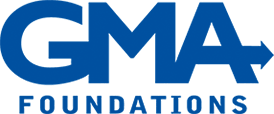
What are the effective approaches in fighting this ongoing and pervasive crisis?
The GMA Funder Community recently explored this question in our 2020 learning series about the opioid epidemic and responses to the substance use crisis. Substance use disorder encompasses a pattern of behaviors that range from misuse to dependency or addiction, whether it is alcohol, legal drugs or illegal drugs. An estimated 21 million Americans have at least one addiction—with the National Institute of Health reporting that approximately 1.6 million Americans has an opioid use disorder in 2019.
While some emergency support may come from state or federal funding, local organizations are positioned to help communities sustain lasting change. Here are the hallmarks of effective approaches:
Deep Community Engagement
Stigma is a primary barrier to receiving treatment. Grassroots work engages the whole community to fight the stigma of substance use disorder by amplifying residents’ voices, fostering collaboration and resources sharing. The Lawrence Methuen Community Coalition is an exemplary resident-led organization that convenes state and local resources to drive its evidenced-based prevention and education programming. Its Lawrence Hub program utilizes regular inter-agency meetings to identify and intervene with individuals at high-risk for negative life and health outcomes, providing appropriate supports from all relevant service systems and community agencies. On a larger scale, RIZE Massachusetts convenes organizations of all sizes throughout the state to share best practices and advocate for systems level change. By virtue of their deep community roots, local organization are uniquely situated to respond nimbly to evolving individual and family needs.
Holistic Viewpoint
A holistic view is required to address complex needs and help build resilient individuals and strong families—substance use disorder typically overlaps with mental and physical health needs. A 2017 study by SAMHSA estimates that 8.5 million adults experienced co-occurring substance use disorder and mental illness.
While traditional housing programs require treatment first, Heading Home’s Families in Supportive Housing (FISH) program dedicates permanent housing to clients navigating substance use recovery and then provides wraparound services for the whole family. This approach provides a stable environment for participants to focus on their health and may help reduce adverse childhood experiences; potentially preventing a second wave of substance use disorder in the next generation.
Including the whole family in the healing process creates a dialogue about needs, boundaries, and generates empathy that translates to communications with the larger community. Behavioral Health Innovators, Inc. views its clients as design partners and interviews adolescents, families, and experts to build effective programming.
Increased Access to Care
Approximately 80 percent of people with substance use disorder do not receive treatment due to barriers such as transportation, stigma, and availability of resources. Access to local care allows individuals to stay near their community where they can maintain and build on existing support networks. These community resources also increase visibility of substance use disorder as a treatable disease and reducing stigma around seeking treatment.
A collaboration between Massachusetts General Hospital, the Boston Healthcare for the Homeless Program, and Boston Public Health Commission, the CareZone van is a mobile health unit that provides a range of services including health screenings, addiction services, and connects patients to community health centers, treatment programs, or specialty care. The van shifts between four overdose hot spots throughout the week to increase access to care. Analysis of the program indicates an existing demand for mobile addiction treatment services with contact made with over 3,800 individuals and 308 clinical encounters in the first ten months of the program. More than half of those patients were new to Boston Health Care for the Homeless programming.
Framing opioid misuse as fixable through medication alone ignores barriers to treatment patients may experience. Additional supports such as coaching and counseling to address social determinants of health are essential for long-term recovery. People with lived experience of substance use disorder and/or homelessness can connect with patients in a way that a medical provider cannot. A recent study of the ANCHOR program in Rhode Island found that patients who met with a recovery coach following an overdose were more likely to receive naloxone training and follow up treatment.
Philanthropic Support
Hardest-hit communities are making inroads against substance use disorders and the opioid crisis by engaging broadly and deeply to make treatment, counseling, and resources available to vulnerable individuals and their families. Their work is dependent on large federal initiatives and, in no small way, on philanthropic support.
GMA Funder Community’s Opioid Response Fund – a short-term pooled giving and immersive learning vehicle – concluded with unexpected and unrestricted grants to four Eastern Massachusetts nonprofits to recognize their exemplary leadership in meeting their community’s needs with urgency and flexibility. They are:
- Behavioral Health Innovators, Inc., South Chatham ($40,000)
- Lawrence Methuen Community Coalition, Lawrence ($40,000)
- RIZE Massachusetts Foundation, Boston ($10,000)
- Heading Home, Charlestown ($20,000)
These organizations understand the complexity of addiction and are working to intervene with the right type of support at critical moments in people’s lives.
Learn more about the Opioid Response Fund, the experts who guided its thinking, and the pooled giving framework at gmafoundations.com, or contact Carolyn Rau at GMA Foundations.
